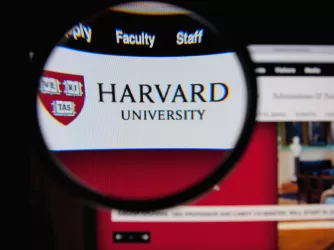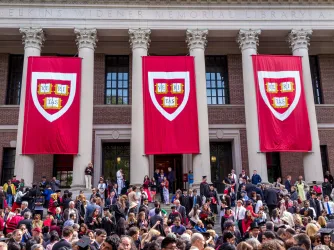Table of Contents
U. of Kansas Professor Assigned to Non-Classroom Duties
The University of Kansas (KU) released a statement last Thursday that David Guth, the professor who was put on administrative leave after a controversial tweet last month, will not return to teaching in the classroom this year. Instead, “Guth has been assigned additional non-classroom responsibilities ... including various service and administrative assignments” which “will be completed away from campus to the greatest extent possible.”
The statement explains the decision, which was made by seven members of the faculty and staff:
“The committee conducted a full review, and their input was instrumental in arriving at this decision,” Gray-Little said. “Our decisions throughout this situation have been guided by the facts and the law, respecting the interests of our students and the rights and responsibilities of citizenship.”
Members of the KU community should be very concerned by this outcome. While administrators have claimed to consider the principles of academic freedom and due process, banning a professor from campus based on the reactions of those who disagree with his viewpoints is simply incompatible with those principles. This response teaches precisely the wrong lessons to the KU community.
First, as I’ve written on The Torch before, this administrative action—particularly now that it’s set in stone—is likely to be viewed by other professors and students as punishment for the content of Guth’s speech, and thus has significant potential to chill protected expression.
Second, those who wish to silence dissenting views can now plainly see that the school will do their work for them if they respond to the speaker in a threatening manner. As my colleague Will Creeley noted, the proper response to safety concerns, if they exist, is to protect those threatened and discipline those making the threats. Instead, KU yielded to the pressure to disregard Guth’s rights and established aheckler’s veto.
Further, the articulated rationale for the decision contains a disturbing suggestion. In KU’s statement, Gray-Little cites “the rights and responsibilities of citizenship.” The right to free speech, though, does not carry “responsibilities” with it—unless Gray-Little means each person’s responsibility not to engage in true threats or other speech that falls into the few narrowly-defined categories of unprotected expression. But despite the fact that Guth’s tweet fell far short of the legal standard for a true threat, Gray-Little’s language suggests Guth failed in some way. To the contrary: He exercised his right to free speech, and the school failed in its responsibility to him.
KU’s statement leaves unsettled the issue of Guth’s teaching next academic year:
Guth will begin a previously approved semester-long research sabbatical beginning in January 2014. Teaching assignments for the fall 2014 semester have not yet been made.
Regardless of whether Guth returns next fall, KU’s statement represents a disappointing conclusion to the dispute over a tweet that is undoubtedly protected by the First Amendment.
Image: University of Kansas campus
Recent Articles
FIRE’s award-winning Newsdesk covers the free speech news you need to stay informed.

Revoking Harvard’s tax-exempt status will threaten all nonprofits

Grandpa’s advice for the new wave of American censors

FIRE POLL: Only 1/4 of Americans support deporting foreigners for pro-Palestinian views
